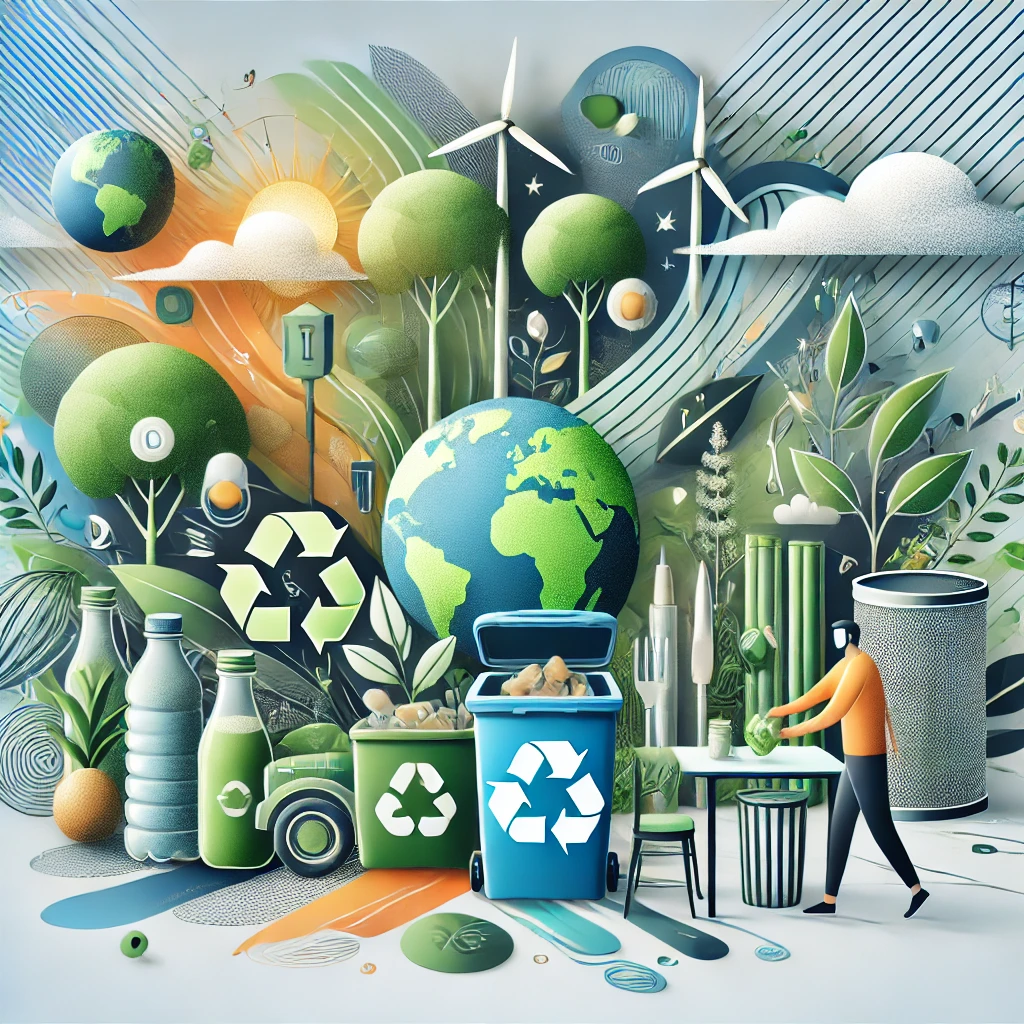
Why Zero-Waste Is the Future of Sustainability
In a world rapidly moving towards more sustainable practices, zero-waste living has emerged as a key solution. This article delves into why zero-waste is the future of sustainability and how it intersects with renewable energy insights, green technologies, and sustainable living tips.
The Growing Need for Sustainability in Our World
With climate change worsening and natural resources depleting, sustainability is no longer just a buzzword—it's a necessity. From renewable energy insights to energy-efficient innovations, we need to rethink how we live and consume. Zero-waste living plays a significant role in this shift toward a more sustainable world.
What Is Zero-Waste Living?
Zero-waste living is all about reducing your environmental impact by aiming to eliminate waste through practices like recycling, reusing, and composting. The goal? To divert waste from landfills and reduce the amount of new resources we consume. It's not just about what you put in the trash; it's about how you live, consume, and dispose of everything around you.
The Importance of Waste Reduction in Sustainability
Every item we throw away adds to the growing landfill problem. By embracing zero-waste practices, we reduce the need for new materials, lower pollution levels, and contribute to a circular economy. It's one of the most effective ways to mitigate the environmental impact of our daily habits.
The Role of Renewable Energy in Achieving Zero-Waste Goals
Renewable energy is an essential component of a sustainable, zero-waste future. Solar power for homes, wind energy, and other green technologies help reduce our dependence on fossil fuels and minimize the carbon footprint of our energy consumption. Renewable energy provides a cleaner, more sustainable alternative to traditional energy sources.
Benefits of Using Solar Energy at Home
Solar power for homes is one of the most accessible ways to incorporate renewable energy into your life. Not only does it reduce your carbon footprint, but it also lowers your energy bills. Solar energy systems are a long-term investment in sustainability, offering numerous environmental and financial benefits.
Sustainable Living Tips for a Zero-Waste Lifestyle
Living sustainably doesn’t mean making drastic sacrifices—it’s about small, intentional changes. Here are some sustainable living tips that will help you live a zero-waste lifestyle:
- Switch to reusable bags, bottles, and containers.
- Choose energy-efficient appliances and switch off unused electronics.
- Start composting your organic waste.
- Purchase second-hand or recycled items whenever possible.
How to Make Your Home More Energy-Efficient
Making your home more energy-efficient is a key step toward both sustainability and waste reduction. Consider installing energy-efficient appliances, improving insulation, and switching to LED lighting. These changes will help you reduce energy consumption, saving money while helping the planet.
Top Green Building Techniques for Eco-Friendly Homes
Building green isn’t just about using eco-friendly materials—it’s about creating homes that are designed to be energy-efficient, sustainable, and waste-reducing. Techniques like passive solar design, rainwater harvesting, and natural ventilation can make a significant difference in the environmental footprint of your home.
Green Technology Reviews: Innovations Shaping the Future
As we transition into a more sustainable future, green technologies are paving the way. From solar power advancements to new energy-efficient innovations, these technologies play a huge role in reducing our impact on the planet. Here are some top green technologies shaping the future of sustainability:
- Energy-efficient appliances like smart thermostats and energy-saving washing machines.
- Electric vehicles that eliminate the need for fossil fuels.
- Carbon capture and storage technologies that reduce emissions.
The Best Electric Vehicles for an Eco-Friendly Lifestyle
If you’re looking to reduce your carbon footprint, one of the best ways to do so is by driving electric. The best electric vehicles of 2025 offer impressive range, affordability, and performance—all while helping to reduce greenhouse gas emissions.
Why Zero-Waste and Renewable Energy Go Hand-in-Hand
The future of sustainability depends on holistic approaches that combine waste reduction with renewable energy solutions. By embracing both zero-waste living and renewable energy, we can significantly reduce our environmental footprint, conserve natural resources, and create a more sustainable world for future generations.
How to Start Living Sustainably Today
It’s easier than you think to start living sustainably! Begin by making small adjustments in your daily life: reduce your waste, conserve energy, and choose sustainable products. You don’t have to make drastic changes overnight—every step you take toward sustainability is a step in the right direction.
FAQs
1. What are the main benefits of zero-waste living?
Zero-waste living helps reduce landfill waste, conserve natural resources, and lower your carbon footprint. It promotes a more sustainable lifestyle by encouraging recycling, reusing, and composting.
2. How can I make my home more energy-efficient?
Start by using energy-efficient appliances, improving insulation, switching to LED lights, and considering renewable energy sources like solar power.
3. What is the role of renewable energy in sustainability?
Renewable energy, like solar and wind power, reduces our reliance on fossil fuels, helps combat climate change, and provides a cleaner, more sustainable alternative to traditional energy sources.
4. What are some top green building techniques?
Green building techniques include passive solar design, rainwater harvesting, natural ventilation, and using sustainable materials to reduce energy consumption and minimize environmental impact.
5. What are the best electric cars for an eco-friendly lifestyle?
Some of the best electric vehicles for an eco-friendly lifestyle include models from Tesla, Rivian, and Lucid Motors. These cars are efficient, reduce emissions, and offer long-range driving capabilities.